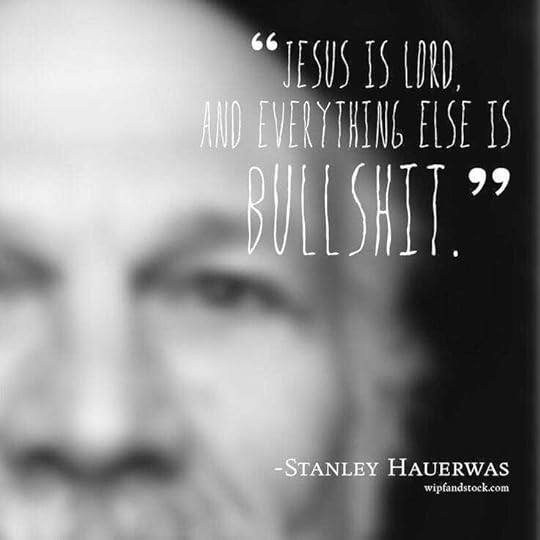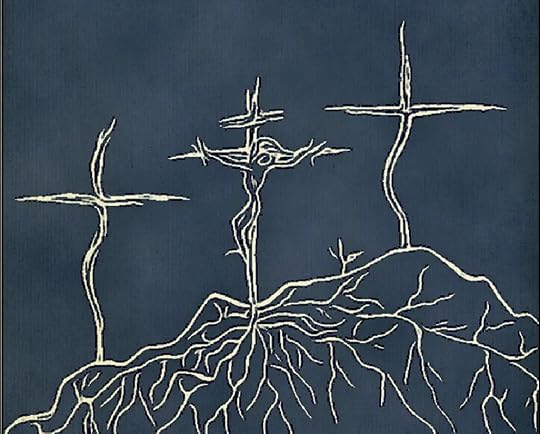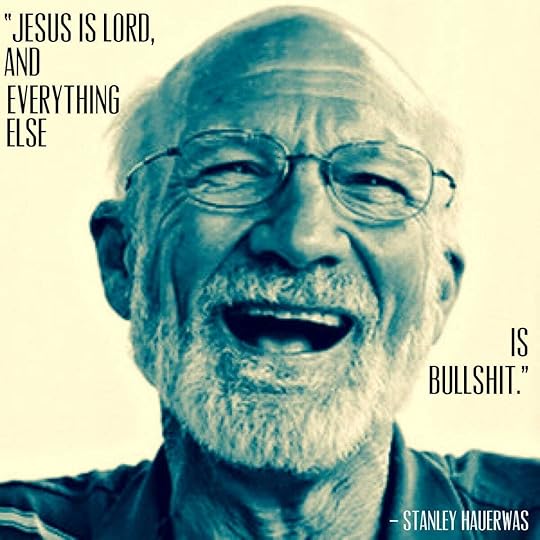An Atheist's Ten Commandments

Tamed Cynic is a reader-supported publication. To receive new posts and all content, consider becoming a paid subscriber.
Hi Friends,
Happy Labor Day!
Just a reminder to all who participate in the Monday evening sessions on the Book of Revelation, there will be no class tonight. We’ll resume next week. You’ll be the fine hands of Josh, Kelly, and the Minion while Todd and I attempt to survive our canoe trip in the Boundary Waters. They will pick up in Revelation 6.
Atheist philosopher Alain de Botton, author of The Consolations of Philosophy, offers a list of commandments for those who can't believe in the God of the more ancient and famous torah. The good news, I suppose, is that the philosopher provides no stipulations against coveting your neighbor’s spouse nor do you need any longer to fret over your failures to keep the sabbath holy. He lists the atheist’s virtues thusly:
Resilience: Keeping going even when things are looking dark.
Empathy: The capacity to connect imaginatively with the sufferings and unique experiences of another person.
Patience: We should grow calmer and more forgiving by being more realistic about how things actually happen.
Sacrifice: We won't ever manage to raise a family, love someone else or save the planet if we don't keep up with the art of sacrifice.
Politeness: Politeness is closely linked to tolerance— the capacity to live alongside people with whom you will never agree but at the same time, cannot avoid.
Humor: Like anger, humor springs from disappointment, but it is disappointment optimally channelled.
Self-awareness: To know oneself is to attempt not to blame others for one's troubles and moods; to have a sense of what's going on inside oneself, and what actually belongs to the world.
Forgiveness: It's recognizing that living with others is not possible without excusing errors.
Hope: Pessimism is not necessarily deep nor optimism shallow.
Confidence: Confidence is not arrogance; rather, it is based on a constant awareness of how short is life and how little we will ultimately lose from risking everything.

Alain de Botton does not end conclude his law-laying as does Christ, “Be perfect as your Father in heaven is perfect,” but he nevertheless proves that you need not believe in the Lord to feel accused by the Law.
Be confident, as your Father in heaven is confident!
How’s that working out for you?
Nonetheless, the philosopher’s commandments for navigating a world without God are if not attractive then at least a bit more practical and everyday than the list Moses brought down from Mount Sinai. I may not be able capable of keeping myself from coveting my neighbor’s wife, but I can determine to be polite in nearly everyday circumstances.
But the atheist’s list commits the same folly as those who foolishly wish to post the Mosaic commandments in civic spaces. The latter advocates, ironically enough, are just as atheistic as the former.That is, in both cases the commandments become merely a list aspirations or aversions shorn of any guiding narrative or interpretative community to exemplify them for some true End.
Just as it's not self-evident what it means to refrain from covetousness, it's not self-evident what the practice of empathy entails.
Both require exemplification and a community of authority, which is to say neither is possible apart from God and the communion of saints he makes possible.
Without a body ordered to a polity, one person's version of empathy will differ markedly from another person's definition, both will turn upon the narrative around which they orient their lives.
For Christians, after all, all notions of humor are unintelligible apart from the greatest joke of all time, the crucified Jesus lives with death behind him.And any understanding of forgiveness, for instance, falls short if it does not refer in its fullest to the death of Christ for the ungodly. Meanwhile, patience, for Christians, does not name the attempt to “grow calmer and more forgiving by being more realistic about how things actually happen.” Patience is simply the practice of prayer and eucharist, acts by which we point to the great nevertheless of God’s guaranteed End in a world that is red in tooth and claw with contingency.
The commandments, whether the atheist’s or the believer’s, are unintelligible apart the story-formed community one inhabits.And this is the dread lie and empty despair of something like an atheist’s torah. For it’s not a question of whether we will be shaped by a guiding narrative but which one we will allow to shape us.
The very notion that we don't need a controlling narrative to our lives is in fact the narrative of modernity; it's its own story.
Modernity calls this story “freedom.”
But, as Stanley Hauerwas notes, notice how “you never got to choose the story which told you that you should have no story but the story you chose when you had no story.”
Thus, the offer of commandments that need not the Storyteller is an invitation into a counter-story whose tellers seldom straightforwardly announce themselves. To Hauerwas’s point, usually these narratives’s gods go by names like Mammon and the Market, Nihilism or Empire.
While modernity was defined by the attempt to live in a universal story without a capital-S Storyteller, the story the Bible tells self-attests to be the story of God with his creatures. The Bible both implicitly assumes and explicitly asserts that there is a true Story about the universe exactly because there is, what Robert Jenson calls, a universal novelist. As Alain de Botton exemplifies, the modern world in the west— a modern western world the east is right to fear— was founded upon the attempt to live in a universal story (“Life, liberty, and the pursuit of happiness”) without a universal Storyteller.
Without such a Storyteller, virtues will always be but arbitrary aspirations.For example, note how the atheist’s ten commandments manage to construe sacrifice in a way that requires not you offer your life for the sake of the other nor expect your children to suffer because of your convictions. Jonathan Edwards writes that true virtue will always be exceedingly rare in this world because it is the defining characteristic of the new one. Without a Storyteller to write this new world into being, virtue may be no less rare but we cannot know if it is true.
The experiment of modernity has failed.
It failed necessarily, for if there is no universal Storyteller, then the universe can have no story line. Neither you nor I nor all of us together can so shape the world that it can make narrative sense.
As Jenson writes:
“If God does not invent the world’s story, then it has none, then the world has no narrative that is its own. If there is no God, or indeed if there is some other God than the God of the Bible, there is no narratable world.”
In the project called modernity, the world lost its story.
The world lost its story by attempting to negotiate history without the One who is making history. This poses a question for all who otherwise attempt to speak gospel. In a world that’s lost its story, in a world “that entertains no promises,” how can the church speak her hope of the End?
The church, insists Jenson, must learn to do what Tolkien and Rowling, Lucas and the Duffer Brothers do so well.
The church must be world-builders:
"The church must herself be a communal world in which promises are made and kept. It is the whole vision of an Eschaton that is now missing outside the church. The assembly of believers must therefore itself be the event in which we may behold what is to come. Nor is this necessity new in the life of the church. For what purpose, after all, do we think John the Seer recorded his visions? If, in the post-modern world, a congregation or whatever wants to be “relevant,” its assemblies must be unabashedly events of shared apocalyptic vision. “Going to church” must be a journey to the place where we will behold our destiny, where we will see what is to come of us. Out there—and that is exactly how we must again begin to speak of the society in which the church finds itself—there is no narratable world. But absent a narratable world, the church’s hearers cannot believe or even understand the gospel story—or any other momentous story. If the church is not herself a real, substantial, living world to which the gospel can be true, faith is quite simply impossible.”
Stanley Hauerwas likes to joke that “Jesus Christ is Lord and everything else is bullshit.”
Like any good joke, it’s funny because so much is riding on its truth claim.
If Jesus is not Lord, if there is no Father to have raised him, then everything else is bullshit.
In which case, the atheist’s seventh and ninth commandments negate one another. Obedience to the former (self-awareness) makes the latter (hope) a cruel aspiration.
Jason Micheli's Blog
- Jason Micheli's profile
- 13 followers



